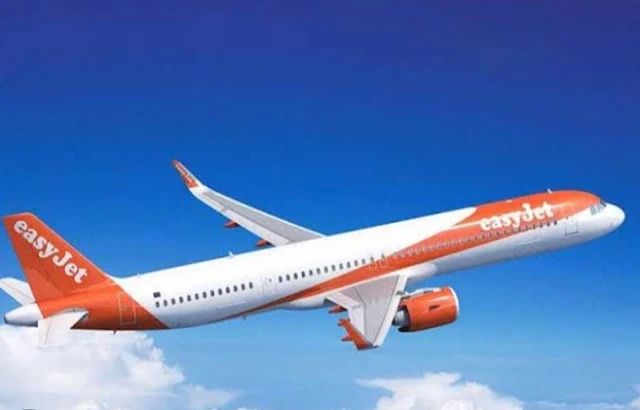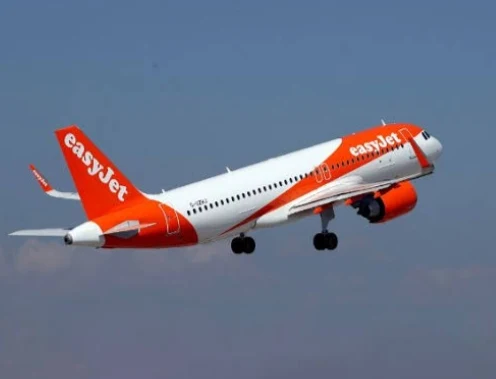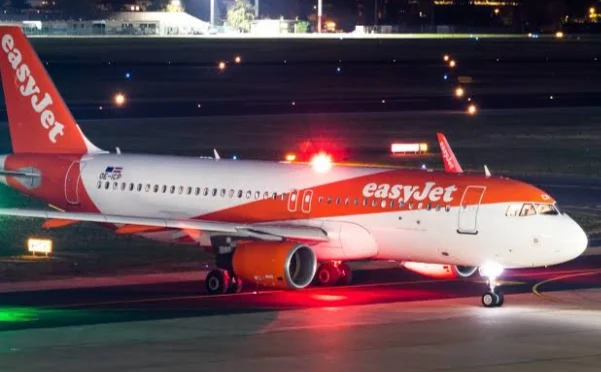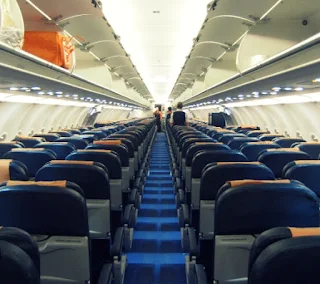EasyJet Takes Flight Towards a Sustainable Future
EasyJet, the UK's beloved budget airline, is soaring to new heights – not just in terms of destinations, but also in its commitment to sustainability.
The airline has set ambitious goals to reduce its environmental impact and is implementing a number of innovative initiatives to make its flights kinder to the planet.
Here's a table summarizing the key milestones in EasyJet's SAF journey:
| Year | Milestone |
|---|---|
| 2012 | First commercial flight using 50% SAF blend |
| 2018 | Partnership with Neste for SAF supply |
| 2022 | Exceeded 1 million liters of SAF consumed |
| 2025 | Target SAF blend of 2% |
| 2035 | Target SAF blend of 20% |
Carbon Offsetting: Taking Responsibility for Every Flight
EasyJet was a pioneer in carbon offsetting, becoming the first airline in the world to offset all carbon emissions from its flights in 2012. This means that for every EasyJet flight you take, the airline invests in projects that capture or reduce carbon dioxide from the atmosphere, such as renewable energy initiatives and tree planting programs. By taking responsibility for the full environmental impact of its flights, EasyJet demonstrates its commitment to a cleaner future for aviation.
Fuel Efficiency: Every Drop Counts
EasyJet recognizes that fuel efficiency is key to reducing its carbon footprint. The airline continuously invests in new technologies and practices to squeeze every drop of fuel for maximum distance. This includes using lighter aircraft materials, optimizing flight routes, and implementing innovative wingtip devices called winglets that reduce drag and improve fuel efficiency. Every little bit adds up, and EasyJet's dedication to fuel efficiency is paying off with significant reductions in carbon emissions per passenger.
Flight With Sustainability: Easy Jet SAF
Sustainable Aviation Fuels: Powering the Future of Flight
Looking beyond traditional jet fuel, EasyJet is one of the first airlines to embrace sustainable aviation fuels (SAFs). These alternative fuels are produced from renewable sources like biomass or waste, significantly reducing the lifecycle carbon emissions compared to conventional jet fuel. While SAFs are currently more expensive, EasyJet's early investment in this technology positions the airline as a leader in the transition to a more sustainable future for aviation.
Reducing Waste: Every Little Thing Makes a Difference
EasyJet understands that small changes can have a big impact. The airline has implemented a number of initiatives to reduce waste on board its flights. This includes eliminating single-use plastics, offering water refill stations to encourage passengers to bring their own reusable bottles, and implementing recycling programs for aluminum cans and paper. By reducing waste generation and promoting responsible consumption, EasyJet is making a positive impact on the environment, one flight at a time.
EasyJet takes flight with Sustainable Aviation Fuel (SAF): A statistical overview
EasyJet, the UK's leading budget airline, is making significant strides towards reducing its environmental impact, and Sustainable Aviation Fuel (SAF) plays a key role in their strategy. Here's a look at some statistics that highlight EasyJet's SAF usage:
Early Adopter: EasyJet was one of the first airlines in the world to use SAF commercially, starting in 2012 with a trial flight using a blend of 50% SAF and 50% conventional jet fuel. Since then, the airline has steadily increased its SAF uptake.
Growing Numbers: In 2023, EasyJet used over 3 million liters of SAF, representing approximately 0.3% of its total fuel consumption. While this percentage may seem small, it's important to remember that SAF is still a relatively new and expensive technology. However, the rapid growth in EasyJet's SAF usage demonstrates their commitment to scaling up this sustainable alternative.
Looking Ahead: EasyJet has ambitious goals for SAF use in the future. The airline aims to increase its SAF blend to 2% by 2025 and 20% by 2035. These ambitious targets would position EasyJet as a leader in the transition to a more sustainable aviation industry.
EasyJet is at the forefront of the SAF revolution in the aviation industry. Their increasing use of this sustainable fuel demonstrates their commitment to reducing their environmental impact and paving the way for a greener future for air travel.
Flight With Sustainability: Table of Easy Jet SAf Usage
Flight With Sustainability: Easy Jet Technology
Investing in Technology: Innovation for a Greener Future
EasyJet isn't just looking at the present; it's also investing in the future of sustainable flight. The airline is exploring and trialing new technologies that could revolutionize the industry.
This includes researching the use of electric ground vehicles for taxiing and ground operations, developing quieter aircraft engines to reduce noise pollution, and exploring alternative propulsion systems like hybrid-electric aircraft. By investing in research and development, EasyJet is paving the way for a more sustainable future for aviation, not just for itself but for the entire industry.
Benefits Beyond Carbon Reduction: SAF offers several environmental benefits beyond reducing carbon emissions. Compared to conventional jet fuel, SAF can also:
- Reduce particulate matter emissions by up to 85%
- Reduce nitrogen oxide emissions by up to 50%
- Reduce sulfur oxide emissions by up to 90%
Challenges and Opportunities: While the potential of SAF is undeniable, there are also challenges to overcome. SAF is currently more expensive than conventional jet fuel, and its availability is limited. However, governments around the world are starting to invest in SAF production, and the technology is rapidly improving. As production increases and costs decrease, SAF is expected to become a more viable option for airlines like EasyJet
Flight With Sustainability: Easy Jet Sustainability Journey
EasyJet's Sustainability Journey: A Beacon of Hope in the Aviation Industry
EasyJet's commitment to sustainability is not just about ticking boxes; it's about taking concrete actions that make a real difference.
The airline's initiatives are already reducing its environmental impact, and its investments in innovation promise further progress in the years to come. EasyJet's journey towards a sustainable future is an inspiration to other airlines and a beacon of hope for a greener aviation industry.
Remember, the next time you book an EasyJet flight, you can rest assured that you're not just choosing a budget-friendly option, but you're also making a conscious choice for a more sustainable future for our planet.
Every flight counts, and with EasyJet, you can choose to fly with a clear conscience.







